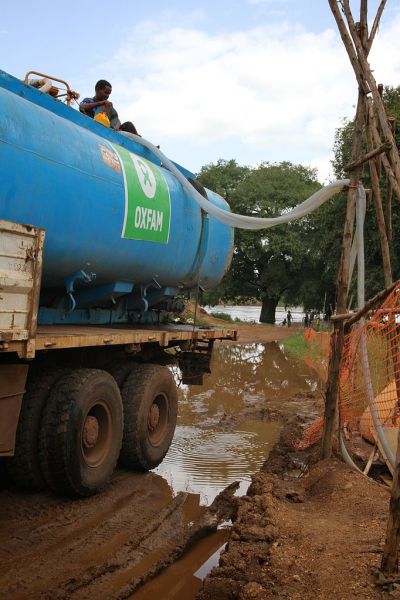
Oxfam is providing clean water to over 100,000 refugees in Gambella, Ethiopia
By Oxfam East Africa [CC BY 2.0 (http://creativecommons.org/licenses/by/2.0)], via Wikimedia Commons
A truly team effort to apply nanotechnology to water filtration that can serve as a model in many areas is emerging within the context of the EU-funded project 'Winning applications of nanotechnology for resolutive hydropurification' (
WATER). WATER is spear-headed by the Consiglio Nazionale delle Ricerche (CNR) in Catania, Italy, in collaboration with the University of Catania, together having world-renowned expertise in nanotechnology and materials research. A case study will take place at Aci Castello, a small town in the Catania area with a protected sea region of interest to the European Commission.
Leaders have put together a multidisciplinary and cross-sectorial partnership that forms a unique bridge for the first time in a European high-tech field. Specialised EU research scientists, local and national authorities, and companies of all sizes have joined forces. The focus is on production of nano-structured smart membranes for water filtration on a large scale using atomic layer deposition (ALD).
Funding supported establishment of a new facility at CNR Catania for ALD and graphene chemical vapour deposition. There are currently 13 doctoral students pursuing WATER topics under the mentorship of partner scientists. Advances in topics such as disinfection by photocatalysis induced by metal oxide nanomaterials and carbon nanotubes have resulted in publications in high-impact scientific journals.
The project is quickly gaining international recognition. WATER organised the prestigious Institute of Electrical and Electronics Engineers (IEEE) Nanotechnology Materials and Devices Conference in Aci Castello in 2014. It was the ninth conference of its kind and the first to be held in Europe. Public outreach has included television and radio spots. A competition for the creation of a video game on nanotechnology and water purification resulted in a prize to the winner, presented at the European Materials Research Society (E-MRS) spring meeting in 2014.
WATER is forging a strong partnership among the scientific community, local and regional public and private authorities, companies of all sizes and the public for mobilisation to action for the common good. Its model for more effective and focused cooperation will ensure that innovative ideas are turned into commercial technologies to address European and global societal challenges.

